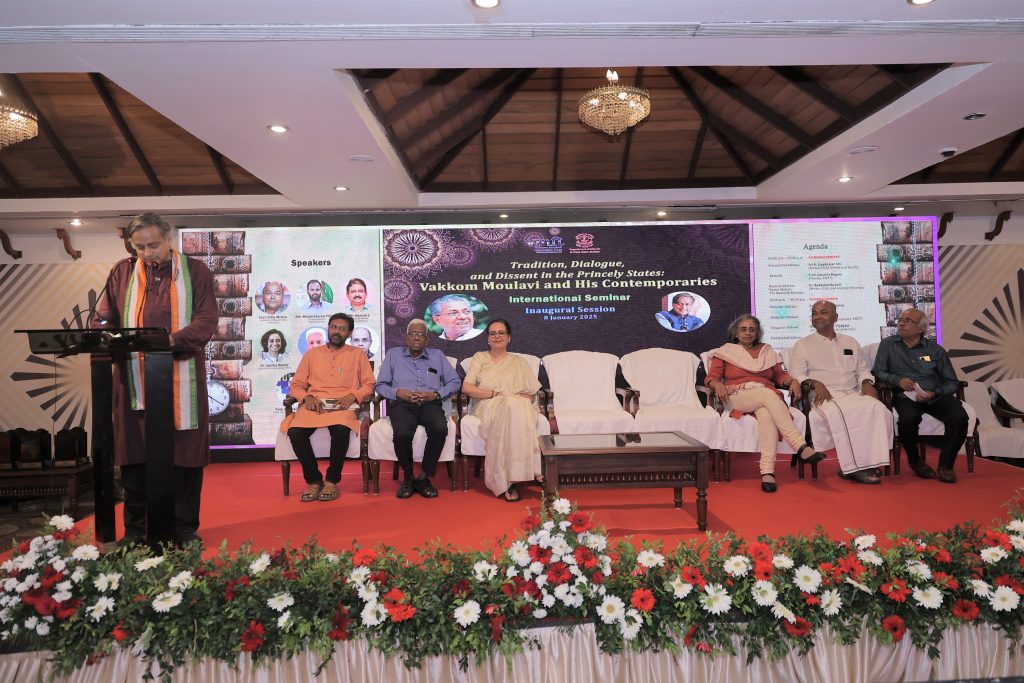This is the first step in VMFT’s project to digitize the works of Vakkom Moulavi in order to make them more broadly available to the general public and researchers in India and abroad. The newspaper, ‘Svadesabhimani’ (commonly transliterated into English as ‘Swadeshabhimani’) was his first and most famous publication and occupies a key role in the political history and development of the print media in Kerala. The newspaper was banned in 1910 by a Royal Proclamation due to its exposure of the crimes and corruption of the royal court and administration; its editor, Ramakrishna Pillai, was exiled and the press was confiscated.
The VMFT is releasing in digital format the first set of editorials of the celebrated newspaper, Svadesabhimani, founded in 1905 by Vakkom Muhammad Abdul Khader Moulavi (1873-1932).( https://svadesabhimani.com/ )The VMFT aims to digitize all the editorials and principal articles that are available in its collection of the newspaper. In the first phase, the articles will be reproduced in Malayalam with brief annotations in English. We hope to translate the articles into English to reach a wider audience.
The newspaper, which published between 1905-1910, was an instrument of social and political reform in a crucial period of the development of Kerala and India’s history. Today, it offers a unique window into that period, the political and social issues that were being debated in the public space in Kerala, the growth of the anti-colonial movement in India and in the broader Islamic world and the ideas that helped to shape modern Kerala. Unique for its time, Svadesabhimani took up issues such as the accountability of government officials, the provision of public education, the reform of traditional social codes, Muslim education reform as well as national and international developments.
Vakkom Moulavi was one of the most prominent leaders of the Kerala Renaissance in the second half of the 19th century and the first half of the 20th century. The social ferment and intellectual awakening in the Kerala Renaissance were led by community leaders of great stature, such as the Moulavi and Ramakrishna Pillai, Sri Narayana Guru and Dr. Palpu, Ayyankali and Chattambi Swamikal. They wanted to reform the society according to their vision of a unified Kerala freed from age old social customs, senseless orthodoxy and blind superstition. Their aims converged at several points to make a comprehensive social reform movement which led to the shaping of modern Kerala.
Through its work of the last thirty years, the Vakkom Moulavi Foundation Trust has contributed to keeping alive the memory of Vakkom Moulavi. In order to create a fitting a lasting memorial to this pioneering journalist and fearless social reformer, the VMFT is undertaking several activities, including the creation of a permanent exhibit on the contributions of Vakkom Moulavi to the renaissance of Kerala and India; the commissioning of a documentary film; the creation of educational and cultural materials and resources for schools and for young people; and the digitization of the journals and publications of Vakkom Moulavi.
Beyond the digitization of the works of Vakkom Moulavi, the VMFT hopes to collect other relevant original historical materials, covering the key intellectual, social, economic, political and technological/scientific developments of the period covering 1850-1950, which influenced the social reformers of the period.



